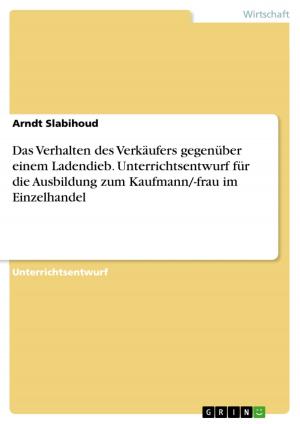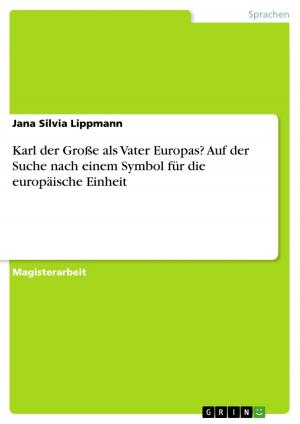Transformation of the European Border Regime
FRONTEX and Operation HERA
Nonfiction, Social & Cultural Studies, Political Science| Author: | Johannes Wiedemann | ISBN: | 9783640964505 |
| Publisher: | GRIN Verlag | Publication: | July 21, 2011 |
| Imprint: | GRIN Verlag | Language: | English |
| Author: | Johannes Wiedemann |
| ISBN: | 9783640964505 |
| Publisher: | GRIN Verlag |
| Publication: | July 21, 2011 |
| Imprint: | GRIN Verlag |
| Language: | English |
Seminar paper from the year 2011 in the subject Politics - International Politics - Topic: European Union, grade: 1,0, University of Southern Denmark (Department of Border Region Studies), course: European Border Region Development, language: English, abstract: The last decade saw the establishment of an European Union agency, FRONTEX, which was made in charge of the common border security polity established by the Schengen aquis which abolished all internal borders for the free movement of persons. Taking this development and its results under scrutiny, this paper will try to give an answer to the following research question: How does the actual application of the Schengen aquis by institutionalizing it in an agency (FRONTEX) affect or transform the border regimes of Member States in particular and the European Union in general? The methodology will consist of an analysis of the legal and deriving organizational design of the agency itself, and as well in describing the operational design of a distinctive FRONTEX deployment. Taking a closer look at the FRONTEX operations HERA I, II and III in particular shall help to define the characteristics and implications of its results in promulgating a paradigm which points out to the result the ongoing transformation of the European border security regime. While being aware of the incentives to create agencies lie in their supposed apolitical nature and ability to maintain policy continuity, which might also apply for the establishment of FRONTEX as an European Union agency, the notorious and critical acclaim this institution faces in the media is another incentive to take as a first step of the analysis a closer look at the historic and legal roots of the agency its impact on the European border regime so far. This will be followed by a description of the organization of FRONTEX and how the agency operates in the operations HERA I, II and III in the years 2006 and 2007.A paradigm will be drawn which an answer on if and how the European border regime is to transform.
Seminar paper from the year 2011 in the subject Politics - International Politics - Topic: European Union, grade: 1,0, University of Southern Denmark (Department of Border Region Studies), course: European Border Region Development, language: English, abstract: The last decade saw the establishment of an European Union agency, FRONTEX, which was made in charge of the common border security polity established by the Schengen aquis which abolished all internal borders for the free movement of persons. Taking this development and its results under scrutiny, this paper will try to give an answer to the following research question: How does the actual application of the Schengen aquis by institutionalizing it in an agency (FRONTEX) affect or transform the border regimes of Member States in particular and the European Union in general? The methodology will consist of an analysis of the legal and deriving organizational design of the agency itself, and as well in describing the operational design of a distinctive FRONTEX deployment. Taking a closer look at the FRONTEX operations HERA I, II and III in particular shall help to define the characteristics and implications of its results in promulgating a paradigm which points out to the result the ongoing transformation of the European border security regime. While being aware of the incentives to create agencies lie in their supposed apolitical nature and ability to maintain policy continuity, which might also apply for the establishment of FRONTEX as an European Union agency, the notorious and critical acclaim this institution faces in the media is another incentive to take as a first step of the analysis a closer look at the historic and legal roots of the agency its impact on the European border regime so far. This will be followed by a description of the organization of FRONTEX and how the agency operates in the operations HERA I, II and III in the years 2006 and 2007.A paradigm will be drawn which an answer on if and how the European border regime is to transform.















